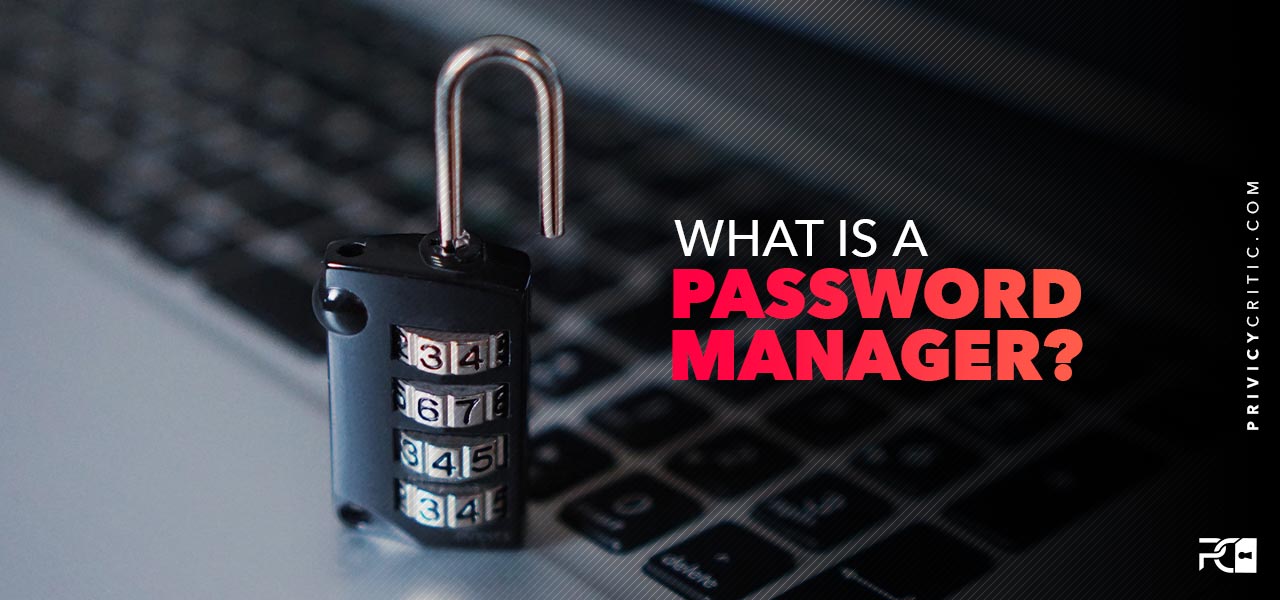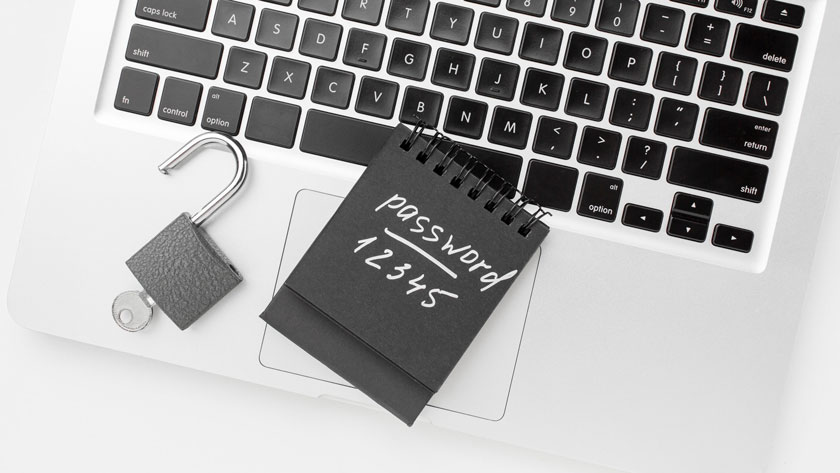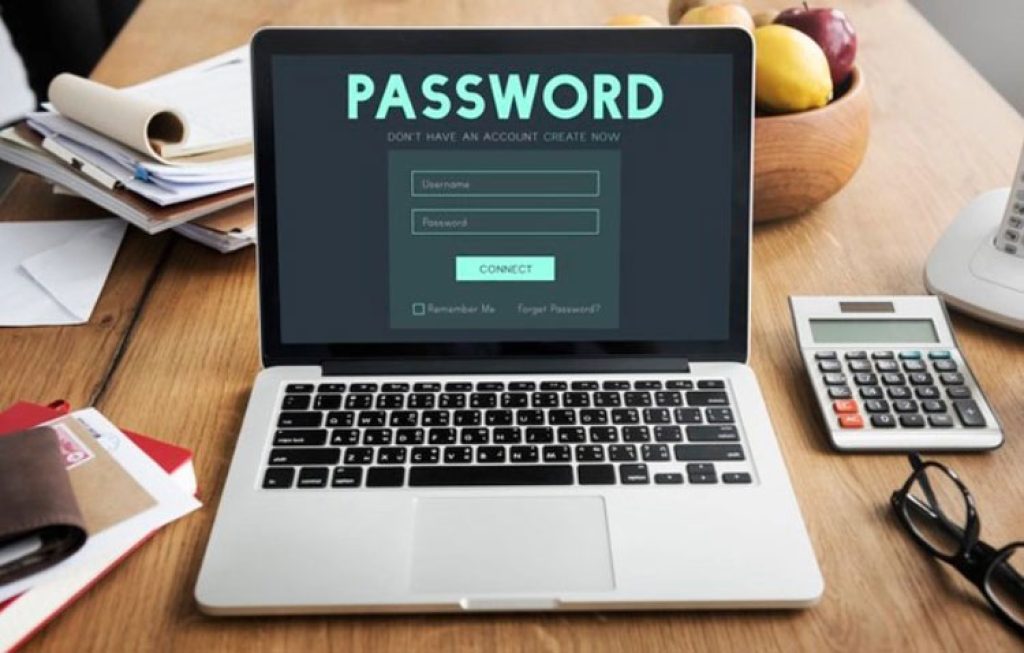
There was a time when we had to only worry about knowing a handful of passwords. These days, with so many social media sites and accounts created nearly every day, it can be difficult to keep track of your passwords. This has forced many people to simply change their passwords every time they log into their accounts or use a Password Manager. This article will help define what a password manager is or define password manager as a whole and as well as how password managers work.
With 1Password you get exceptional service at a convenient price!
This article was last updated on 23 July 2024
What is a Password Manager and how does a Password Manager work?
A password manager can be defined as a computer program that enables its users to generate, store and manage passwords for online services and local applications. To simply answer the question “what does a password manager do?” it basically helps you create a password when creating a new account, and then stores it so you don’t have to remember. It also provides you with complicated passwords ensuring that your account is that much harder to penetrate.
What are the benefits of using a Password Manager: Why use a Password Manager?
Why use a password manager? Well, there are several benefits of using a password manager. The first one is that you no longer have to worry about memorizing all of your passwords anymore. Password managers store your passwords in a vault and all you need to do is remember the master password. Additionally, if your use a cloud-based password manager, then you could access the password from just about any device.
How does a Password Manager work: Password Generator
Apart from being able to store your password, a password manager can also act as a password generator. Most passwords managers will ask if you would prefer an auto-generated password when you create an account with an application or website. Typically, these passwords are random, alphanumeric, long, and basically impossible to guess.
How does a Password Manager work: Browser Extensions
Password managers, particularly those with browser extensions can also help alert you to phishing sites. Phishing is a process in which spam emails are faked or spoofed to appear as if they are being sent from a legitimate sender such as a family member, friend, colleague or company you work with. The links in the emails are malicious as they direct you to similarly spoofed websites that have been seemingly designed to harvest your login credentials. If you are using a cloud-based password manager with browser extensions, the password generator will stop you from autocompleting your username and password fields. This is because it doesn’t recognize the website.
How does a Password Manager work: Auto-fill
Password managers can help save time. Apart from simply storing passwords, quite a number of password managers can also auto-fill login credentials for quicker access to your online accounts. Additionally, some password managers can help autofill and store information such as email, address, name, and credit card information. This process can be a great timesaver when browsing online.
How does a Password Manager work: Online Synchronization
When clarifying what does a password manager does, you can find out that password managers sync across various operating systems. For instance, if you use a MacOS at work and Windows at home, with an Android phone for personal use and an iPhone for work, you can seamlessly access your passwords from all these devices regardless of the platform you are currently on.
Now that we have answered the question “what is a password manager?” and what does a password manager do, it is time to highlight the security features of a password manager.
Are Password Managers safe and secure: Why use a Password Manager?
To be able to answer the question of just how safe is password manager, it is important to highlight all the things that password managers offer. For one, most password vaults utilise AES-256 encryption, multi-factor authentication and zero-knowledge technology to ensure users are protected. When it comes to safety, perhaps the most pertinent thing is to utilise a master password which requires you to log in before you can access all your other passwords in the master password vault. This is why your master password should be a strong one. To this end, it needs to be at least 12 characters long, be impossible to guess and contain numerous symbols.
Best Password Managers
In order to find the best password manager, we had to be able to answer the following questions:
- What is a password manager or what is a password manager and how does it work?
- How does a password manager work or what is a password manager and why is it useful?
- What does a password manager do or what is a good password manager?
- Why use a password manager or how secure is a password manager?
Being able to answer the above questions helped us to filter out the best password managers, testing numerous solutions and comparing them amongst each other to find the very best. This exhaustive process was done to ensure that you can simply read the article and pick out the best password manager for you. To this end, here are the best password managers:
How do Password Managers generate strong passwords?
This section helps to answer the question “what does a password manager do?”
Most people believe that using a password manager only helps them to store their passwords, however, you can also use password manager to generate complicated and unique passwords. This in turn makes the passwords that much harder to guess or crack. One way to do create a unique password is to utilise encryption algorithms.
By nature of their design, these algorithms are difficult to understand. Additionally, users are always prompted by the password generator to use a unique password for each account login them have. In doing so they are able to keep their information out of the hands of nefarious actors. Very algorithm-generated password typically utilises a combination of lower and upper case letters, numbers are symbols which in turn make them unpredictable.
When a new password is generated from the password generator, you get the option of making it as diverse and lengthy as you want to without having to worry about remembering it.
When passwords generators create a unique password, they typically come with a diverse set of symbols and numbers like the examples below:
- &imiclwrobr5p-lqedRe
- misp8?epRE_aPr0+ra4E
- stE3rE4ru2Orich8@aDR
- xe=E1es-7@IPOcUse0ak
- ge#&6O2ajLwAce$L8#ef
Looking at the examples above, you can see that every password is a unique password, difficult to guess and is complicated. This ensures your logins are as secure as they can be. Not only does a password manager help to create a strong and unique password, but it also helps to simplify your life. It does this by helping you seamlessly log into your favourite platform easier. Hopefully, this helps to answer the question “why use a password manager? or how does a password manager work”.
What are the types of Password Managers?
Apart from answering the question “what is a password manager?”, we have to understand the types of password managers available.
When it comes to password managers, there are various types. There are:
- Online services which can be accessed via website portals aka cloud-based password managers
- Locally installed software applications
- Locally accessed hardware devices that serve as keys
Where the encrypted database of your password manager is stored typically depends on the type of password manager you select, as well as the functionality. For instance, if it is a cloud-based password manager, it will be stored online, if it is a local-based password manager it will be stored on your computer or mobile device.
Password managers usually require a user to create and remember a master password in order to unlock and gain access to the information stored in their databases. Quite a number of password manager applications provide additional capabilities which can enhance security and convenience such as autofill functionality, frequent flyer information and credit card information.
Why use a Password Manager: Password Best Practices
Now that you can answer the question “what is a password manager?” and “what does a password manager do?”, we have to talk about the best practices when creating a password.
In order to help you keep your information secure, there are some things you need to do and be aware of when creating a password. This section of the article will highlight exactly that.
Don’t reuse passwords
Most people tend to use a couple of passwords across various sites and social media platforms. Considering that data breachers have now become a fact of life, if one website with your login is hacked, a determined attacker can simply use that information to try out your other accounts on other platforms. Using the same passwords and user id can leave your vulnerable to multiple attacks. Using just one password per website helps to limit your exposure if your data does get leaked.
Concentrate on creating a longer password rather than a complicated one
For years, experts have stated that creating a complicated password is one of the ways to protect your password from being hacked. However, creating a password with so many complicated symbols and letters means we are less likely to remember them. Additionally, most people were scared of forgetting their passwords so they simply added a symbol such as a full stop or number to the end of their password. This makes their password easily guessable and hackers know of this strategy.
Don’t use password hints
Using password hints are a widespread way of confirming your identity if you don’t remember your password. You shouldn’t use them as they are extremely popular and people today tend to overshare their personal information on social media sites. A determined hacker can simply harvest these pieces of information. If you are stuck on a site that requires password hints, you should create fictitious answers that only you would know. This can help prevent your answers from being ferreted out by someone else.
FAQs
📕 What is a Password Manager and how does a Password Manager work?
A password manager can be defined as a computer program that helps you create a password when creating a new account, and then stores it so you don’t have to remember.
📗 Why is a Password Manager safe?
Password vaults utilise AES-256 encryption, multi factor authentication and zero-knowledge technology to ensure users are protected.
📘 How to choose Password Manager?
You will want to select the password manager that offers the most secure facilities as well as features such as cloud storage and master password vault.
📙 What Password Manager should I use?
If you are searching for a password manager, you should look no further than 1Password, our top-ranking password manager.
Conclusion
Over the course of the article, we have been able to answer what does a password manager does, however, it is important to also answer the question of why use a password manager or what does a password manager do and why use a password manager. Password managers have become increasingly popular due to the plethora of website accounts the average person has. The most effective way to store your information is to simply have a master password that provides you with access to your login info. This in turn ensures that your accounts and information are kept safe.









